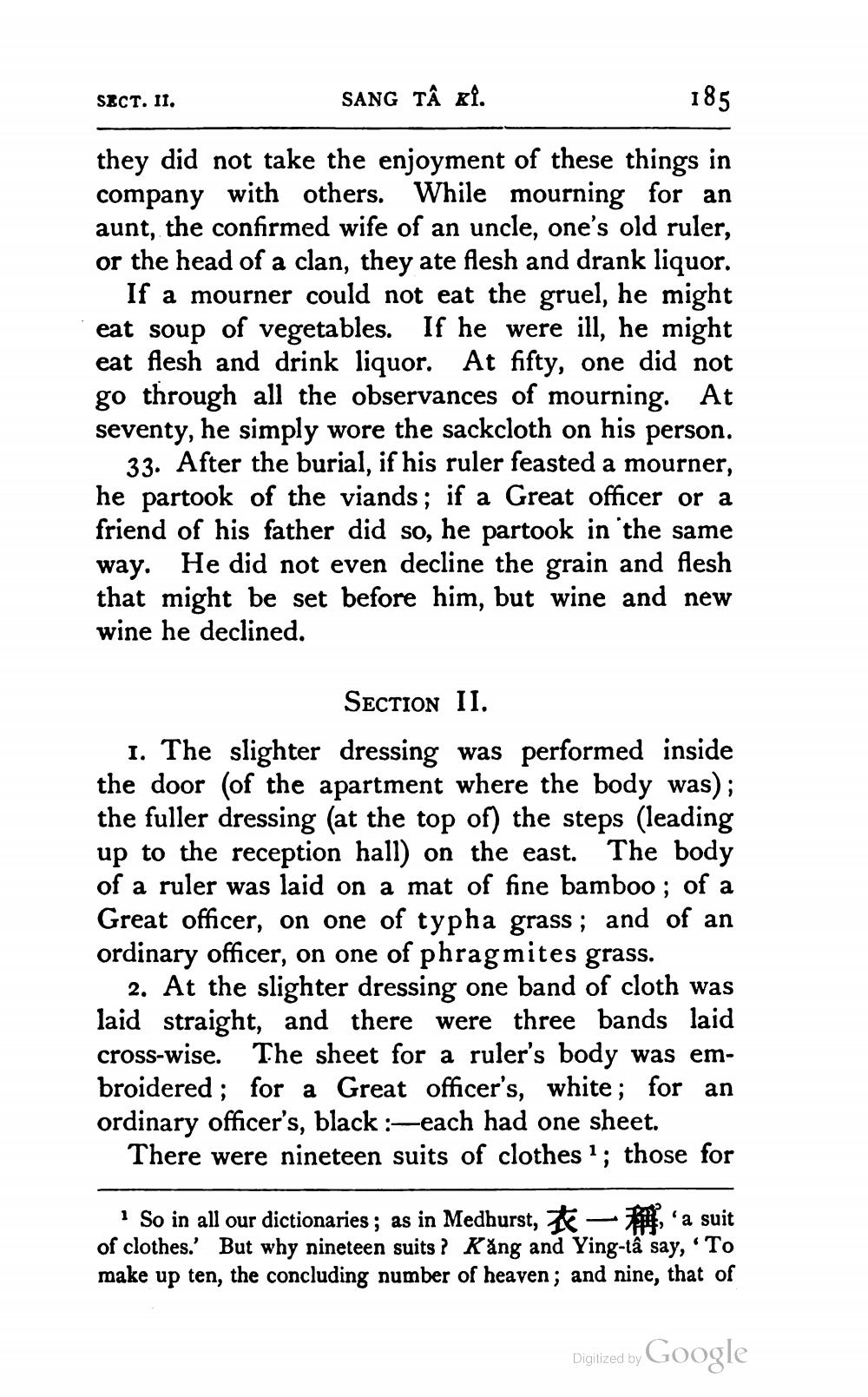________________
SECT. II.
SANG TA KỲ.
185
they did not take the enjoyment of these things in company with others. While mourning for an aunt, the confirmed wife of an uncle, one's old ruler, or the head of a clan, they ate flesh and drank liquor.
If a mourner could not eat the gruel, he might eat soup of vegetables. If he were ill, he might eat flesh and drink liquor. At fifty, one did not go through all the observances of mourning. At seventy, he simply wore the sackcloth on his person.
33. After the burial, if his ruler feasted a mourner, he partook of the viands; if a Great officer or a friend of his father did so, he partook in the same way. He did not even decline the grain and flesh that might be set before him, but wine and new wine he declined.
SECTION II. 1. The slighter dressing was performed inside the door (of the apartment where the body was); the fuller dressing (at the top of) the steps (leading up to the reception hall) on the east. The body of a ruler was laid on a mat of fine bamboo; of a Great officer, on one of typha grass; and of an ordinary officer, on one of phragmites grass.
2. At the slighter dressing one band of cloth was laid straight, and there were three bands laid cross-wise. The sheet for a ruler's body was embroidered; for a Great officer's, white; for an ordinary officer's, black :-each had one sheet.
There were nineteen suits of clothes ?; those for
So in all our dictionaries; as in Medhurst, te- a suit of clothes.' But why nineteen suits? Käng and Ying-tã say, 'To make up ten, the concluding number of heaven; and nine, that of
Digitized by Google




